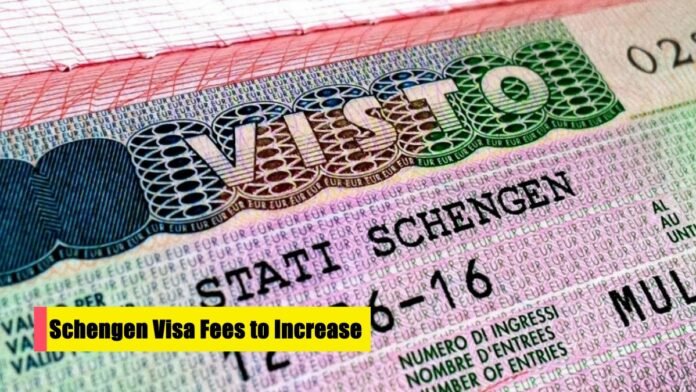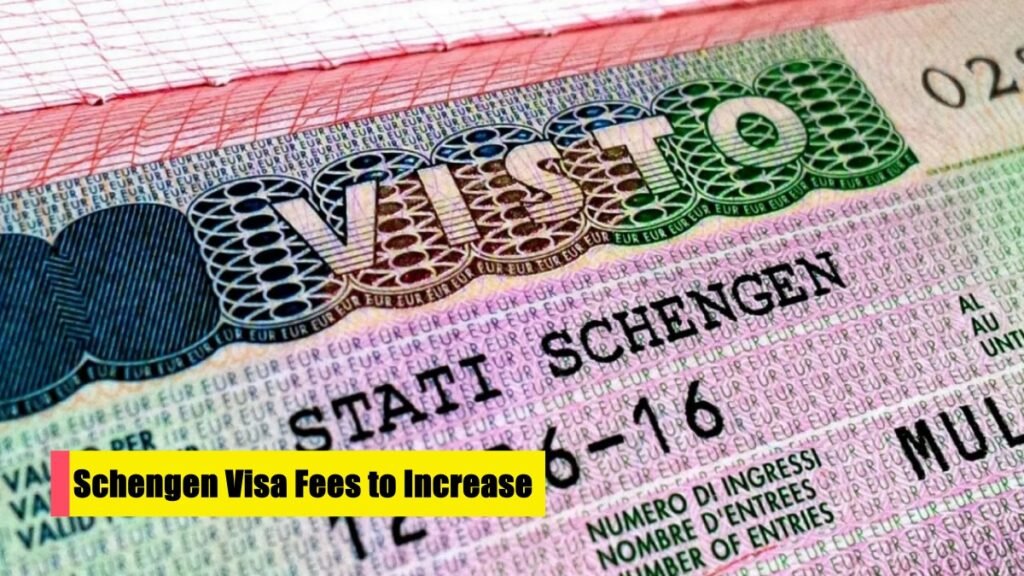
New Delhi: Travellers to Europe will soon face higher visa application fees as the European Commission has approved a 12 percent increase in Schengen visa fees. This change will be applicable worldwide starting from June 11, 2024, according to Slovenia’s Ministry of Foreign and European Affairs. Interestingly, this move comes at the same time when the bloc is actively trying to promote tourism in the region.
New Fee Structure
The revised fee structure will impact both adult applicants and children aged 6 to 12. Here are the details:
- Adult Applicants: The fee for adult applicants will increase from €80 to €90.
- Children Aged 6-12: Children falling within this age group will now pay €45, up from the previous fee of €40.
Additionally, countries that are deemed uncooperative with the EU’s efforts to repatriate their citizens may face even steeper hikes, with fees potentially reaching €135 or €180.
Exchange Rate Considerations
As of now, a euro (€) is equivalent to 90.45 Indian rupees. Travelers from India and other countries will need to factor in this exchange rate when planning their European trips.
Reasons Behind the Increase
The European Commission cites inflation and rising civil servant salaries as the primary reasons for this fee hike. Notably, the last fee adjustment occurred in February 2020.
Review Cycle and Schengen Visa Code
This decision follows a scheduled review of EU visa fees that took place in December 2023. Such reviews occur every three years, as stipulated by the Schengen Visa Code.
Schengen Area and Visa-Free Travel
The Schengen Area comprises 29 European countries that offer visa-free travel for short stays to holders of a Schengen visa. These countries include Austria, Belgium, Bulgaria, Croatia, Czech Republic, Denmark, Estonia, Finland, France, Germany, Greece, Hungary, Iceland, Italy, Latvia, Liechtenstein, Lithuania, Luxembourg, Malta, Netherlands, Norway (not officially part of the Schengen Area but applies regulations), Poland, Portugal, Romania, Slovakia, Slovenia, Spain, Sweden, and Switzerland.
Disappointment for Some
While this news is essential for travelers, it comes as a disappointment for some, particularly Turkish citizens who have long awaited a visa-free travel agreement with the EU.

Application Trends
In 2023, the Schengen region received over 10.3 million short-stay visa applications, reflecting a 37 percent year-on-year rise. However, this is still below the pre-pandemic peak of 17 million applications received in 2019. Notably, India secured the third position in terms of visa applications for Europe, with a total of 9,66,687 submissions.
Visa Cascade for Indian Citizens
Interestingly, the visa fee hike coincides with the European Commission’s introduction of a new visa regime specifically for Indian citizens residing in India. This regime, known as the “visa cascade,” includes easier access to multi-entry visas, rewards for positive visa history, and the potential for a five-year visa.



















































